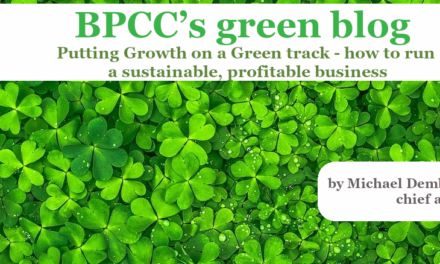World leaders have gathered at Sharm El Sheikh in Egypt for the 27th Conference of Parties – the UN-convened series of climate-change summits. Held annually since the UN’s first climate agreement in 1992, these events bring governments together to agree on policies to limit global temperature rises, align their responses, and adapt to the impact of climate change.
This year’s summit takes place in the shadow of Russia’s war in Ukraine and the US mid-term elections, and is therefore attracting less media coverage than last year’s COP. Speeches on the opening day were largely predictable, with calls to action highlighting the urgency of climate situation.
Of interest, however, was UK prime minister Rishi Sunak’s speech: “Putin’s abhorrent war in Ukraine and rising energy prices across the world are not a reason to go slow on climate change. They are a reason to act faster.” He said that the UK will stick to its goal of providing £11.6bn in climate funding, and will triple its funding on adaptation to £1.5bn by 2025. The UK under Sunak’s leadership might be raising taxes and cutting spending at home, but the climate emergency continues to receive the funding to which previous governments had committed themselves to – and more.
As well as monitoring progress (or lack of it) in de-carbonisation, and setting further targets for the future, a key part of COP27 will be to focus on the needs of the developing world. This is a thorny issue for governments. If poorer countries are to grow, they will need to consume vastly more energy than they are doing so right now. Where will that energy come from – and if it is to be renewable energy – who will pay for it?
The average person in sub-Saharan Africa (excluding South Africa) consumes 185 kilowatt-hours (kWh) a year, compared to 6,500kWh in Europe and 12,700kWh in America. As this week’s The Economist points out, an American fridge uses more electricity than a typical African person. “Low energy use is a consequence of poverty; but it is also a cause of it. If Africa is to grow richer it will need to use a lot more energy, including fossil fuels. Yet its efforts to do so put it on a collision course with hypocritical rich countries,” it writes.
Along with this conundrum is the notion of climate reparations or ‘loss and damage’; rich countries paying poorer ones to adapt to climate change, helping to protect their people against droughts, floods and storms, while at the same time investing in renewable energy sources to boost green growth. Given that the industrialised countries have contributed vastly more greenhouse gas emissions into the atmosphere and poorer countries are generally paying the price for the climate change they have produced, this is entirely fair. Scenes from Pakistan this summer when significant parts of the country were under water, or killer heatwaves sweeping the Middle East, show how vulnerable to climate change the developing world is.
For me, the UN climate-change summits are a time of deep reflection about the way we in the rich world (yes – Poland is now in the rich world) live our lives, driven by a desire to possess material goods to demonstrate our position in the status hierarchy. This self-centred behaviour is impacting the climate, as raw materials and fossil-fuelled energy are consumed to make things we no longer need – but merely want.
Like the Tragedy of the Commons in 19th century England, when people could all graze their livestock for free on common land, there being no cost nor disincentive not to overgraze the pastures. In the end, this led to the collapse of the system. So it is today – when we buy and use a large car just for short urban journeys, we think it is costing us nothing more than the fuel we pour into the tank, but actually it is polluting and congesting the city and pumping out large volumes of greenhouse-gas emissions that everybody ultimately pays for.
You can either act now in terms of changing your behaviour voluntarily, or wait until some higher authorities order you to do so. In which case, you will be left feeling resentful. If you are already convinced – based on seeing the climate change before your eyes – that human behaviour is the cause, then you do not have to wait to be told – take steps now; alter your lifestyle to be less wasteful of energy and non-renewable resources.
Part of this is being conscious of how much energy you consume, and how much non-recyclable waste you produce. If you can’t measure it, you can’t manage it.




























